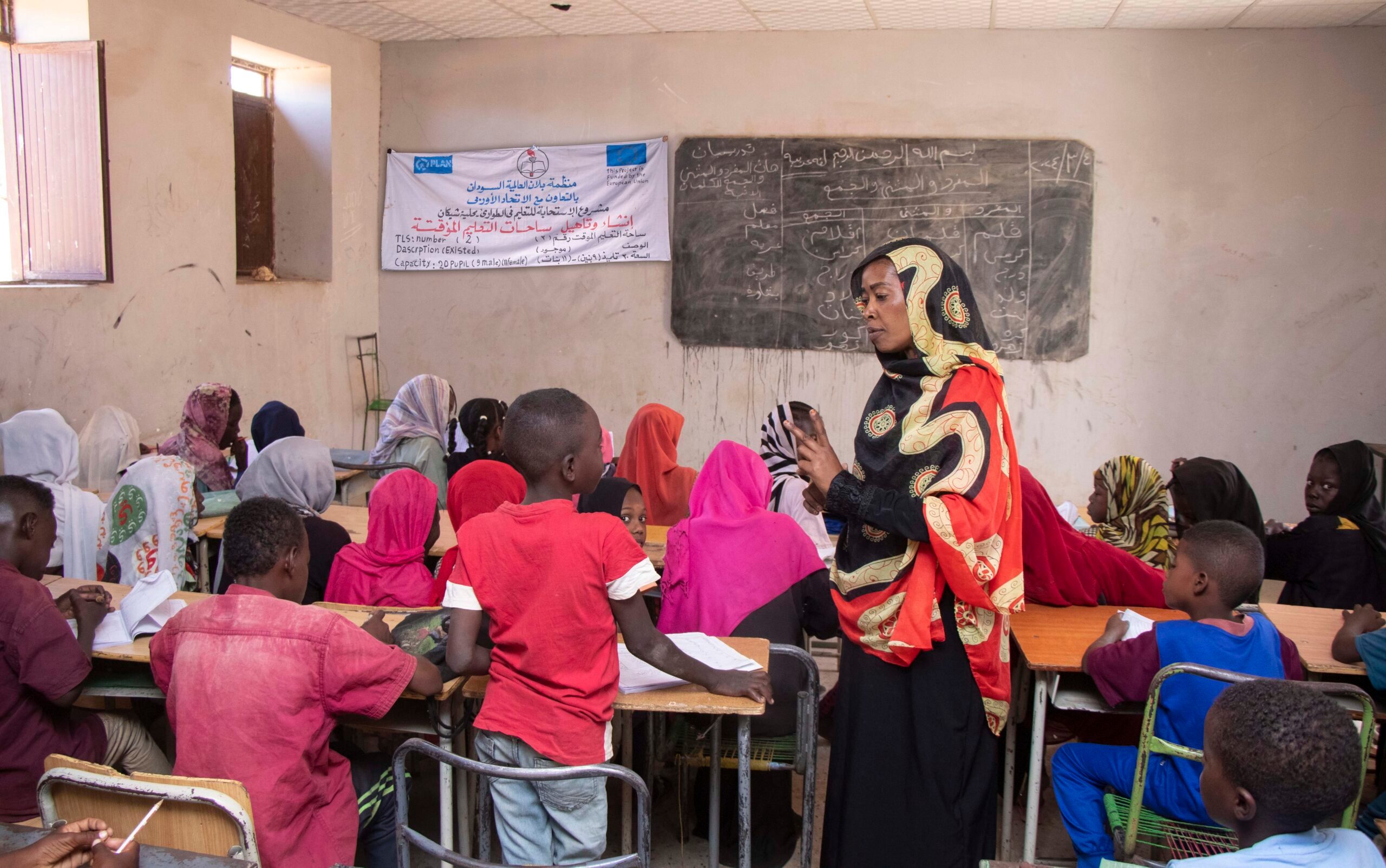Humanitarian organisations urge continued EU leadership on education in emergencies
9 April 2025
Learning space in Kordofan, Sudan, in 2024, ran by Plan International with the support of DG ECHO. Credits: Sudan, 2024. Plan International, all rights reserved.
As the world grapples with the escalating effects of conflict, climate change, and geopolitical instability, five leading humanitarian organisations have joined forces to stress the urgent need for the EU to maintain its leadership in global development and humanitarian efforts, including its commitment to education in emergencies.
With rapidly increasing levels of humanitarian needs, the global humanitarian system is facing significant challenges, including a growing funding gap, worrying reductions in Official Development Assistance (ODA), including from EU member states, and the recent dismantling of USAID.
These disruptions are severely impacting populations across the world experiencing extreme vulnerability, with children some of the worst affected.
The EU’s support for education in emergencies has been vital in providing both immediate protection and hope to millions of children, offering them not just a critical chance to learn, but a pathway to a safer future.
Education in emergencies: an essential component of humanitarian action
Education in emergencies is a lifeline for children affected by conflict, displacement, or natural disasters. Beyond offering protection through the creation of safe spaces, education reduces their exposure to other risks such as child labour, early marriage, exploitation, and recruitment by armed groups. It also helps strengthen the broader humanitarian responses in a crisis or conflict, particularly when it is explicitly linked to other key sectors, such as child protection, food security, and health.
Given this, the five leading humanitarian organisations joined together to commend ECHO’s commitment to education in emergencies while calling for continued efforts to strengthen this support. They emphasise the importance of prioritising education in the upcoming EU multiannual financial framework (MFF) and reinforcing access to education as a fundamental right for the millions of children caught in crisis.
Safe learning spaces amidst Sudan’s escalating crisis
In Sudan’s North Darfur and Kordofan, ongoing violence and insecurity continue to displace communities, leaving many people living in overcrowded shelters where the risk of sexual and gender-based violence remains high. For many families, the constant threat of danger means parents and caregivers cannot leave their children alone, severely limiting their ability to engage in essential activities such as work or securing food and water.
In response to these challenges, Plan International, with the support of DG ECHO, runs safe learning spaces providing critical support for both children and parents. These spaces offer children a safe refuge from the overcrowded shelters, where they can engage in supervised play-based learning and receive psychosocial support, including important safety messages. For parents and caregivers, the learning spaces provide the opportunity to leave the shelters in search of food, clean water or medical care without fearing for their children’s safety. Additionally, staff at the learning spaces are trained to identify children and caregivers in need of specialised care and refer them to the necessary services, such as hospitals, ensuring that affected children and adults receive the help they need.
The letter has been co-signed by the CEOs of Plan International, Save the Children, the Norwegian Refugee Council, the International Rescue Committee and World Vision.
Joint letter to DG ECHO on eiE
157 kb


